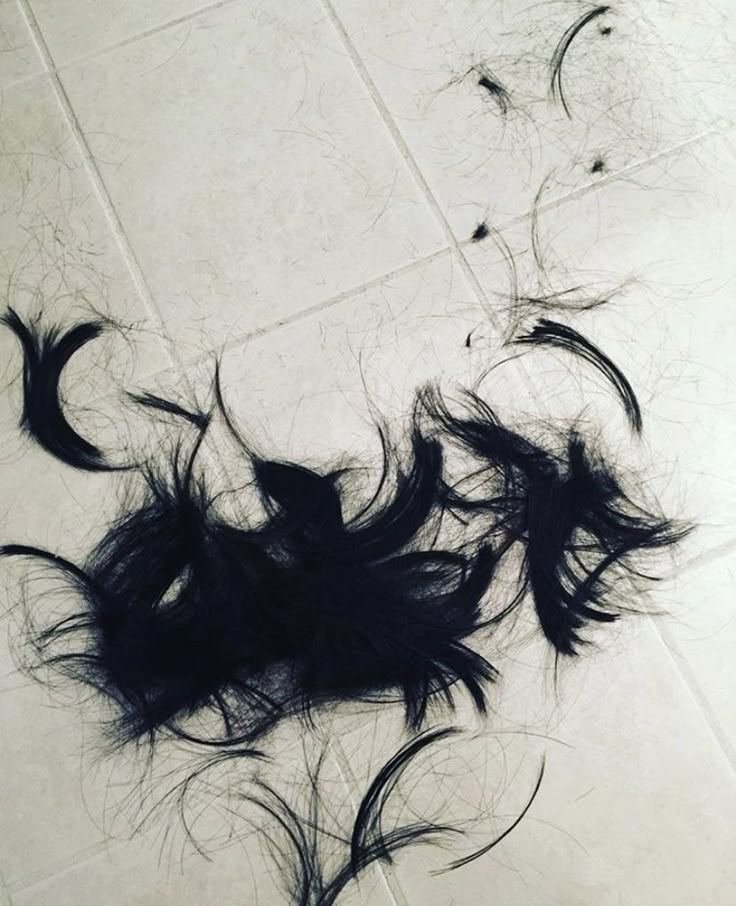Navigating Hair Changes During Perimenopause, Menopause, and HRT: A Comprehensive Guide
As women approach perimenopause and menopause, many notice changes in their hair—thinning, dryness, increased shedding, or even changes in texture. These changes can be unsettling, but they are a natural part of the hormonal shifts that occur during this stage of life. Hormone replacement therapy (HRT) can help manage some symptoms, but it’s important to understand how it affects your hair and what you can do to maintain healthy locks (and as always we say talk with your trusted team of professionals)
Understanding the Role of ALL Hormones:
During perimenopause and menopause, estrogen and progesterone levels decline, leading to a relative increase in the effects of androgens (male hormones). This hormonal shift can contribute to hair thinning and changes in texture. Estrogen promotes hair growth and keeps hair in the growing phase longer, so a decrease can result in more hair entering the resting phase, leading to shedding.
During peri and menapause, hormonal imbalances can lead to changes in hair texture, thickness, and growth. DHT can shrink hair follicles, leading to hair thinning and loss. However, several strategies can help mitigate these effects:
Can Low Testosterone Affect Women’s Hair Health? Yes—Here’s How.
When we talk about hormones and hair, the conversation often centers around excess androgens like DHT (dihydrotestosterone) and their link to hair loss. But what many people don’t realize is that too little testosterone—particularly in women—can also have a significant impact on the health, texture, and thickness of hair.
Below, we explore the lesser-known but very real connection between low testosterone and hair changes in women.
1. Low Testosterone Can Contribute to Thinning Hair
Testosterone, while commonly thought of as a “male” hormone, plays important roles in women’s bodies too—especially when it comes to maintaining skin, muscle tone, and yes, hair follicle health.
Hair follicles have androgen receptors that respond to hormones like testosterone. These hormones help signal the follicle to remain in its active growth phase (anagen) and produce thick, healthy strands. When testosterone drops too low—whether due to aging, medical conditions, or hormonal fluctuations—this supportive signal weakens. The result? Follicles may shrink, the hair growth cycle shortens, and shedding may increase.
So while high levels of DHT are typically associated with pattern hair loss, low testosterone can also lead to thinning—just through a different mechanism: a lack of hormonal support rather than overexposure to DHT.
2. Hair Can Become Dry and Brittle with Low Androgens
Another under-discussed symptom of low testosterone is its effect on scalp oil production. Testosterone and other androgens help regulate sebaceous gland activity, which keeps the scalp naturally moisturized. Sebum—the natural oil your scalp produces—not only keeps hair soft and shiny, it also protects the hair shaft and reduces breakage.
When testosterone levels drop, sebum production can decline. The result? Hair may feel drier, more brittle, and more prone to split ends. You might notice your hair is less manageable, or that it lacks its usual softness and luster—even if you haven’t changed your routine.
This is especially common during perimenopause and menopause, when hormonal shifts (including lower testosterone and estrogen) naturally occur. It’s also relevant for anyone undergoing treatments that affect hormonal balance.
What You Can Do
If you’re noticing changes in your hair—thinning, dryness, brittleness—it may be worth exploring the hormonal piece of the puzzle, alongside scalp health and nutrient intake. Working with a healthcare provider who can run a full hormone panel is a great first step.
In the meantime, using targeted scalp and hair care can make a difference. Supporting the scalp’s natural oil balance, strengthening the hair shaft, and promoting circulation through gentle oiling, massaging, and pH-balanced cleansing routines can help protect what your body is working to grow.
Because beauty rooted in balance always shines the brightest.
Scalp Oiling:
Regularly oiling your scalp can nourish the follicles and improve blood circulation, help to dissolve excess sebum and remove impurities from the scalp, promoting healthier hair growth.
Acupuncture on the scalp:
Acupuncture can help balance your body’s energy and improve blood flow to the scalp, potentially reducing the impact of DHT on your hair. This ancient practice stimulates blood flow and nutrient delivery to the scalp, revitalizing hair follicles.
Scalp Massaging
Regular scalp massages enhance blood circulation, strengthening hair follicles and promoting growth. Hair grows where blood flows, so ensuring good circulation is vital.
Regular Shampooing and Rinsing
Keeping your scalp clean is crucial. Regular shampooing and simple rinsing with water can help reduce DHT buildup and keep hair follicles healthy.
Dealing with Nutritional Deficiencies and Stress
Nutritional deficiencies can cause stress on your hormones, leading to imbalances and hair loss. Ensuring you get the right nutrients and managing stress are critical for maintaining healthy hair. Stressful events like childbirth, surgeries, or illnesses can trigger hair loss, so it's essential to care for your scalp and body to mitigate these effects.
HRT:
HRT can help balance hormone levels and may mitigate some hair-related issues. However, HRT’s effects on hair vary from person to person, depending on the type of therapy and individual response.Hormones like testosterone and its byproduct dihydrotestosterone (DHT) play crucial roles in hair health. (always discuss with youyr team of doctors to see whats best for you)
Embracing a Scalp-Centric Approach
A healthy scalp is the foundation for healthy hair. During perimenopause and menopause, the scalp can become drier and more sensitive. Incorporating a scalp care routine is essential. Regular scalp massages with nourishing oils, such as olive or rosemary oil, can stimulate blood flow and promote hair growth. Consider using gentle exfoliating oil treatments to remove buildup and allow hair follicles to breathe.
Choosing the Right Hair Care Products
As your hair changes, so should your hair care routine. Opt for sulfate-free shampoos and conditioners that are gentle on the scalp and hair. Look for products containing ingredients like biotin, keratin, and peptides, which can strengthen and nourish thinning hair. If you’re experiencing significant dryness, consider a hydrating and moisturizing hair mask once a week to restore moisture and elasticity.
Diet and Nutrition: Feed Your Hair from Within
Nutrition plays a crucial role in hair health, especially during menopause. Focus on a balanced diet rich in vitamins and minerals that support hair growth, such as iron, zinc, and vitamins A, C, and D. Omega-3 fatty acids found in fish, flaxseed, and walnuts can also help keep hair shiny and strong. If needed, talk to your healthcare provider about supplements that might support your hair health during this time.
Stress Management and Lifestyle Adjustments
Stress can exacerbate hair loss and other menopause symptoms. Incorporating stress-reducing practices like yoga, meditation, or regular exercise can make a significant difference. Ensure you’re getting enough sleep and staying hydrated—both are essential for overall well-being and healthy hair.
Consulting with Professionals
If you’re concerned about hair loss or significant changes in your hair, it may be helpful to consult a dermatologist or trichologist (a specialist in hair and scalp health). They can provide personalized advice and recommend treatments tailored to your specific needs. In some cases, HRT adjustments or topical treatments like minoxidil might be recommended.
Conclusion
Hair changes during perimenopause, menopause, and HRT are common and entirely natural, but that doesn’t mean you have to navigate them alone. By adopting a holistic approach that includes proper hair care, nutrition, stress management, and professional guidance, you can maintain healthy, beautiful hair throughout this transition. Remember, every woman’s experience is unique, so find what works best for you and embrace the journey.
Hair changes during these new cycles and hormone replacement therapy (HRT) are common and can be a source of concern. However, it's essential to understand that these changes are part of the process, and with the right care, things can improve significantly. Many clients have experienced these changes and reported better overall well-being after adjusting to their new hormonal balance.
AND ABOVE ALL: Patience and Persistence
Hair growth and improvement take time. With consistent care and patience, you will start to see positive changes. Your body is adjusting, and it’s crucial to give it the time it needs to adapt.
Remember, you are not alone in this journey. Many have navigated these changes and found ways to thrive. Stay patient, and keep taking care of yourself and your hair.



